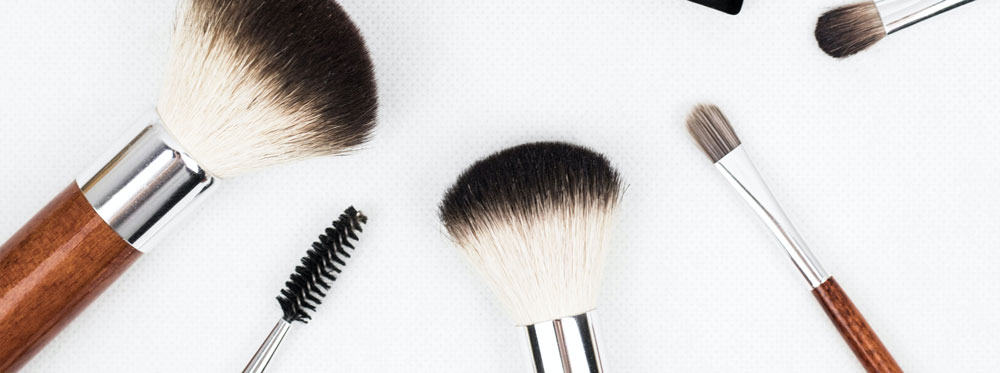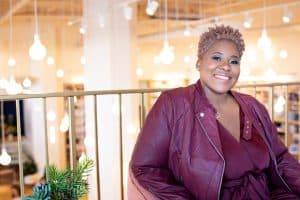5 Key Strategies to Build a Better Beauty Business
Small beauty brands make up a huge portion of the industry. If you want to break into beauty with a new product or service, where should you start?

The beauty industry’s estimated size was over $532 billion in 2019 according to Forbes. Small beauty brands and boutique local businesses make up a huge portion of the industry in the United States, and more brands are emerging all the time. If you want to break into beauty with a new product or service, where should you start?
We asked Twanna Toliver, beauty entrepreneur, business coach, and founder of Toliver Creative Group, to share her insights into how aspiring entrepreneurs in the beauty industry can set themselves up for success. Read on to find out exactly how you can build a better beauty business.
1. If an aspiring beauty founder has a great concept and wants to make a career switch to the beauty industry, what are the very first steps s/he should take to make that transition?
The first step should be to conduct a market analysis to make sure there is a market for the product you want to develop. The first question to answer should be: is there an opportunity or a hole in the market?
The beauty industry is a crowded space, but that simply means that it is ripe for sophistication. How does your product stand out in the crowd? Start social listening and conducting surveys to see what beauty consumers desire the most. Also, attend industry events to see what competitors are doing – just because you have not seen it does not mean it has not already been done.
After you have done a detailed market analysis, then you should be able to develop your target client profile along with your product profile. Who do you serve? Why? How will your product help them?
With regards to funding, you can combine market research with raising funding by running a crowdfunding campaign that will not only help you raise seed money from your existing community, but also allow you to test your concept. IFundWomen is a great organization to help you do this.
Finally, an aspiring beauty entrepreneur needs to get up to speed with the business of beauty, including industry lingo and best practices. Join the industry’s well-known organizations, such as Cosmetic Executive Women, and subscribe to the top publications, such as Beauty Independent and Global Cosmetic Industry Magazine.
Better yet, if you can find an industry insider to help you navigate the pipeline from concept to launch as a mentor or consultant, this will give you the best chance to being able to make a smooth transition to beauty entrepreneur.
2. Are there any relevant regulations or industry standards that beauty founders should keep in mind when it comes to ingredients and supplies?
California recently passed two statewide laws affecting the beauty industry. The state has banned 24 ingredients and is also requiring fragrance brands to disclose their full ingredients list. Industry experts see this as the first of additional laws that will be passed on a federal level by the Food and Drug Administration, (FDA) which is the government body that regulates the beauty industry, as consumer demand for transparency in labeling increases.
Aspiring beauty entrepreneurs should be aware of two current laws: The Federal Food, Drug, and Cosmetic Act (FD & C Act) and the Fair Packaging and Labeling Act (FPLA). Each of these laws provides what the FDA considers the definition of a cosmetic and the correct way a cosmetic should be labeled.
3. Pricing can be tough in the beauty industry – list prices for customers vary widely! How should a beauty founder think about where to situate the brand within that broad spectrum of prices? What business operations factors might affect the pricing strategy?
Pricing is the hardest job of the aspiring beauty entrepreneur. Forecasting sales is no easy feat. The cost of goods sold (COGS) varies widely among beauty brands. However, along with your formulation, the following are other key questions and or variables when determining the price of your product:
- Do you want your product to be prestige or a mass retail product? In other words, will your product be a luxury product sold through exclusive retailers or a more attainable product sold in mass retail partners such as Target and or Walmart?
- Consider your packaging and labeling needs. Will you be doing custom, high-end packaging, or stock packaging? Will you use screen silk labeling or other specialty processes?
- Finally, a mistake many founders make is not factoring in future team hiring. You may be starting lean and bootstrapping your business, but as sales increase, you will need to hire a team. You should account for that cost early on.
- Let’s talk about marketing. How do emerging brands set themselves apart in such a competitive industry?
Beauty consumers are savvy and may know more about the beauty industry than other industries’ consumers. Many beauty founders were beauty junkies and bloggers first. Because of this consumer trait, it is important to be authentic in all your marketing efforts. Collaborations and partnerships with complementary brands and influencers that align with your core values are great tactics for establishing a digital marketing style that will set you apart. Remember, you don’t have to approach the influencers with the most followers –establish relationships with micro-influencers who have real engagement instead. This will set you on a path to finding your people and building your own community.
4. Many beauty service businesses like salons and spas have had to get creative since the onset of the COVID pandemic because the core of their businesses is close-up interaction with customers. What advice do you have for business owners trying to maintain excellent customer service amidst all these changes?
This is the best time to try all the things that have been on your wish list, but you were too busy to implement. Think of it this way: We have entered the longest commercial break ever, so now is the time to get up and cook all the snacks you have been craving but were too engrossed in the show to stop and make.
These key strategies will help you build a strong foundation for your small business in the beauty industry. It’s critical to address concept, operations, pricing, marketing, and now COVID concerns when starting or growing your brand. And now, for some bonus insights from Twanna:
5. What’s the best advice you’ve ever received on starting or growing a successful beauty brand?
The best advice that I have received – that I did not listen to and wish that I did (and will shout from every rooftop so every aspiring beauty founder could hear me) – is to start with one signature product. I have written extensively about the power of one when it comes to starting a beauty brand. It is the best advice because it will alleviate every single issue that a new beauty brand will face early on, from inventory control all the way to funding. Starting with one SKU (stock keeping unit) is not only cost-effective, but it’ll also allow your brand to take shape and gain a cult following, allowing your customers to determine your next product to introduce. Some of the industry’s most beloved and successful brands started with one, such as Bobbi Brown and Sara Happ.
By following these best practices and advice, you can set yourself up for success as a small business owner in the world of beauty.
About the Expert
 Twanna Toliver is an action-inducing, results-igniting Creative Business Coach. She is dedicated to providing ambitious, high-achieving women currently in corporate careers with practical strategies so they can turn their creativity into a profitable, long-term beauty business.
Twanna Toliver is an action-inducing, results-igniting Creative Business Coach. She is dedicated to providing ambitious, high-achieving women currently in corporate careers with practical strategies so they can turn their creativity into a profitable, long-term beauty business.
Known for her straight-up, no-fluff coaching style, Twanna pushes women to break through their self-limiting beliefs and shows them how to step into their seemingly impossible dreams. Aspiring beauty mavens turn to her for advice from how to claim their piece of the multi-billion beauty industry to turning their creative ingenuity into cash. She leverages her 10 years of business and creative experience in the beauty and corporate sector along with social media marketing experience to ensure her clients achieve the results they want … even if she has to drag them kicking and screaming into the best version of themselves.
Her background as an Aveda-trained licensed esthetician and the priceless wisdom obtained from running her own beauty brand provides aspiring beauty entrepreneurs with the insider knowledge needed to grow their businesses.
Twanna proudly stands as the quintessential accountability partner for high-achieving women ready to level up their income, dive into entrepreneurism and monetize their creativity. You can learn more about her at www.twannatoliver.com or check out her podcast Higher Than This wherever you get your podcast fix. Follow her @twannatoliver.